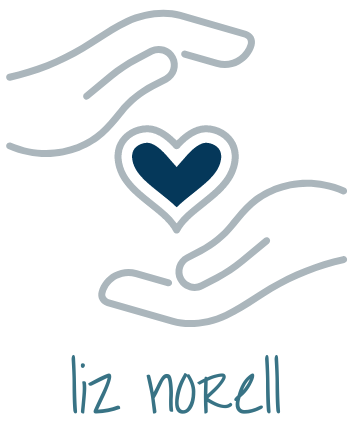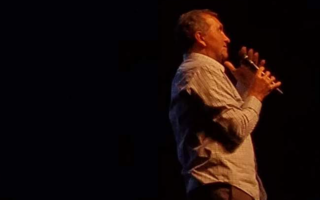For a lot of 2016, I’ve thought about how divergent my life’s two biggest current passions are — political science and yoga. American politics this year have been — dare I say it? — unusually nasty, and yoga is the very opposite. What is the common thread?
At first, my impulse was to think of yoga as the yin to the yang of my professional life. Political science involves studying how a whole lot of tough decisions get made about (as Harold Lasswell famously said) who gets what, when, and how. Understanding how those decisions get made is at the heart of what I explore intellectually and teach to my students. Inherently, then, political science contains a strong undercurrent of competition, of sorting out the winners and losers.
Yoga couldn’t be more different. Yoga challenges us to embrace now, just as it is. Meeting yourself where you are, as you are, is one of yoga’s greatest gifts. We set aside the striving for a few stolen moments of the yoga practice, and we tune into the quiet voice inside us that knows what we need. Yoga is about wholeness, about love, about presence. It is the very opposite of the practice of politics.
And yet, for me, these two things have increasingly come into harmony for me. It’ll take me a little bit to get you there, but bear with me.
Remarkably, the catalyst for this unexpected marriage of philosophy has come from my work this semester teaching World Politics offline for the first time. To be honest, I dreaded teaching this class: I’m not an international relations scholar, I don’t know much about IR theory (other than what I learned in my one required seminar in grad school), and I’m pretty ignorant about events happening in most of the world. That’s not because I don’t see the value in being informed; rather, it’s because when I have taken the time to learn about world events, I find myself somewhere between despairing and disappointed with the incredible persecution that happens out there in the world. I’ll gladly take the (relatively) petty differences of American politics over the genocide, war crimes, and intractable problems out there in the world.
As a political scientist, though, this avoidance of the tough questions couldn’t last forever, of course. When I was told I’d be teaching World Politics to actual, real students, my first impulse was to hope the class wouldn’t attract enough enrollment to run. We ended up with 12 students, which is a bit low, but the Powers That Be decided it was enough for us to run the class. Faced with 15 weeks of class time to fill, I had to come up with something to say or do with these inquisitive students.
It all started with a whim, really: What if we dove deeply into the Syrian conflict, trying to see the situation from the variety of perspectives involved, then see if we could brainstorm possible actions to move the conflict forward?
I bought an eBook on the history of Syria’s leader, Bashar al-Assad, and assigned my students to research one of the major perspectives. I devoured the book about Assad, told in narrative fashion by a scholar who had visited Assad many times. Staying just a couple of steps ahead of my students, I led us through a “simulation” of Syria. One of my students said, “Is this problem even fixable?” It was the right question. None of us could answer. But in the process, I came to see the humanity of each person or organization involved. Assad isn’t making humane choices, but it’s not that big of a leap to understand why he would fight back against his own people.
Next, we tackled North Korea. I think it’s human nature to be intrigued by North Korea. Reading two personal narratives of Americans who went to North Korea — one for vacation, one posing as a missionary English teacher — deeply affected me. My heart aches for those living in North Korea. They don’t have the benefit of the ignorance I’d been choosing for 39 years: They can’t find out what’s happening in the rest of the world, and if they try, they can be sentenced to life in a work camp or, worse yet, wind up dead. And yet, as we simulated the North Korea situation, my students and I came to understand why the various actors, including Kim Jong-un, behave as they do.
Today, I finished a moving book about the Israeli-Palestinian conflict called The Lemon Tree. I was profoundly affected by this story. The story (again, narrative nonfiction) weaves the story of two people — one Palestinian, one Israeli — connected by one house, behind which stood a lemon tree.
It was in finishing this book that I have come to understand how political science and yoga fit together: They each teach us about how to relate our own experience to the broader human experience. When you try to understand how and why others make the choices they do, you challenge yourself to find the common humanity. The Jewish woman in The Lemon Tree embodies this in a way most of us will never have the courage or conviction to do; Dalia understood that if we do not reach out to our enemy, to The Other, we will never stop fighting. We will never have peace.
This reminds me of Jonathan Haidt’s incredibly important work on understanding the moral foundations of liberals and conservatives. Haidt challenges us in his TED Talk to step outside of the fight of good against evil at least occasionally. Instead, he says, we must learn to cultivate a certain moral humility and try to understand one another. When we stop engaging in the mindset of teams (e.g., Democrats and Republicans), we can approach the world with a more open mind and open heart.
And ultimately, isn’t that what yoga is all about? I think it is. Yoga encourages humility; it demands we accept the world as is. People new to yoga often feel invited to compare themselves to the others practicing in the class with them. Yoga invites us instead to turn our focus inward, to listen to our own wisdom.
How much better this world might be if we could invite that same acceptance and humility into our lives more broadly. When we seek out the humanity in others, rather than demonizing or comparing or engaging in Us against Them thinking, we find common ground. We can be present. We can love.
So there you go — my brand of political science is quickly becoming an extension of my yoga practice. It’s been heading in that direction for years, but it’s only thanks to my experiences struggling with my lack of knowledge in World Politics that I’ve really made the connection.
In August 1994, I was entering my senior year of high school after having spent the summer in France as an exchange student, then at a stay-away six-week summer camp for rising high school seniors called Governor’s School. That summer shifted the way I thought about myself and my future. I chose to apply to colleges thinking I’d major in French and international relations, then join the foreign service. It took me approximately 48 hours of homesickness at GW to realize that I wasn’t cut out for that kind of life. I never even took an IR class as an undergrad. I barely even took any political science classes at GW. I’m struck today, as I’ve been struck at many times in my life, how everything has once again come full circle: Twenty-two years later, I’ve fallen in love with a class about international relations and the lessons it has taught — and continues to teach — me.
Each of the books I linked above is a great read. If you find yourself curious about the most difficult problems facing our world, check one (or more!) out.


